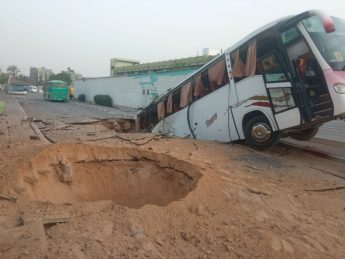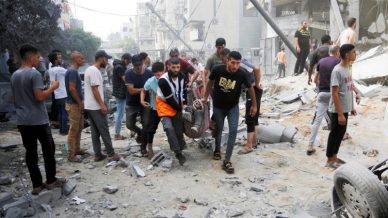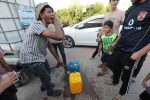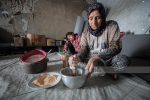GAZA, (PIC)
With a faint voice interrupted by labored breathing and suppressed tears, Hajj Ahmad Darabiya, 87, described his harsh condition as a diabetic trapped by hunger and disease in the Gaza Strip, where famine continues to loom for the third consecutive month due to the blockade and ongoing closure of crossings since the onset of the Israeli aggression more than a year and a half ago.
For a decade, Darabiya has been committed to taking daily doses of insulin. Today, this routine has become nearly impossible and even life-threatening.
With food scarce, he faces a bitter choice either to take his medication on an empty stomach and risk hypoglycemia, or stop taking it at all and face a potentially fatal spike in his blood sugar.
“I wake up at night hungry. I have no medicine and no food. I fear a coma if I take insulin, and death if I don’t,” he said.
Signs of emaciation are visible on his face. His trembling hands reflect his profound health deterioration. He also suffers from diabetic foot ulcers, which increase his pain and concerns.
“I feel like I am walking down a desolate road toward an inevitable end,” he added in a trembling voice.
Darabiya’s suffering is just one example of the reality faced by thousands of patients in Gaza.
Abir al-Birm, 75, also tells her story of this harsh reality. She survives on meals provided by a nearby soup kitchen, but the meals’ nutritional content is very poor and insufficient to protect her body from frequent episodes of hypoglycemia.
“I no longer take my medication because the food is not suitable for it. I lose consciousness sometimes more than once a day,” she said bitterly.
Double danger and suffocating health crisis
Health organizations, including the World Health Organization, have sounded the alarm about a serious deterioration in the condition of chronically ill patients, especially diabetics, whose number exceeds 60,000 in Gaza.
They point out that the lack of balance between food and treatment puts their lives at real risk.
In this context, therapeutic nutritionist Dr. Suad Obeid explains that “diabetes patients depend on a delicate balance between meals and medication. Retaining this balance is no longer possible amid the current food crisis.”
“The choice between taking medication without food or vice versa leads to serious consequences leading to coma or even death,” she added.
Obeid points out that the food aid that arrives is often limited to rice, bread, and some starches, which all raise blood sugar and further deteriorate patients’ health, while fruits, vegetables, and essential proteins are almost completely absent.
According to diabetes specialist Dr. Muhammad Siyam, “A patient with type 1 diabetes may lose his or her life if he or she suffers from a diabetic ketoacidosis attack”.
“There are no beds available in intensive care units,” he highlighted.
Hunger kills
A recent international report reveals that 96% of Gaza’s population suffers from severe food insecurity, with more than half a million people living in conditions classified as “catastrophic.”
The report warns that widespread famine could become a reality if restrictions on aid entry continue.
In Gaza, diabetes is no longer just a chronic disease, but a brutal battle for life, where every day forms a test of survival, given that with every missed meal and every missed dose of medication, the chances of survival diminish and the end draws nearer.















